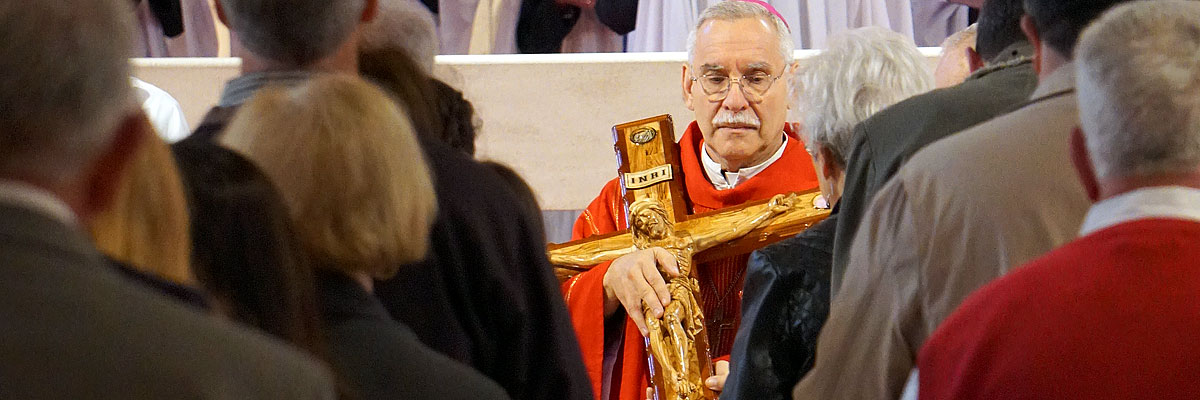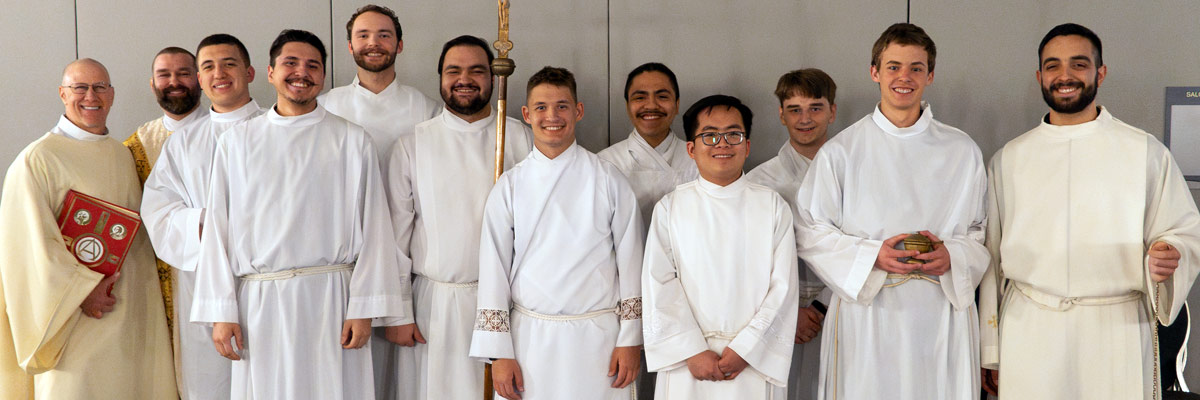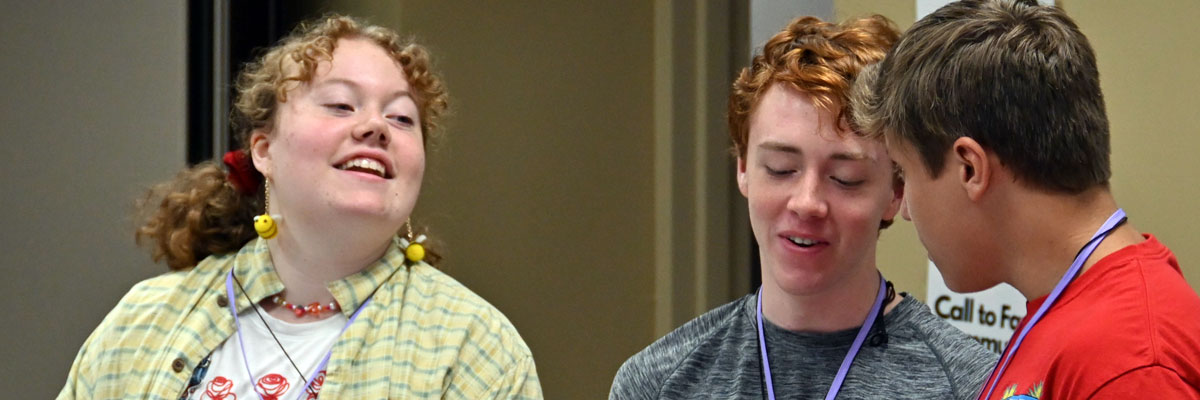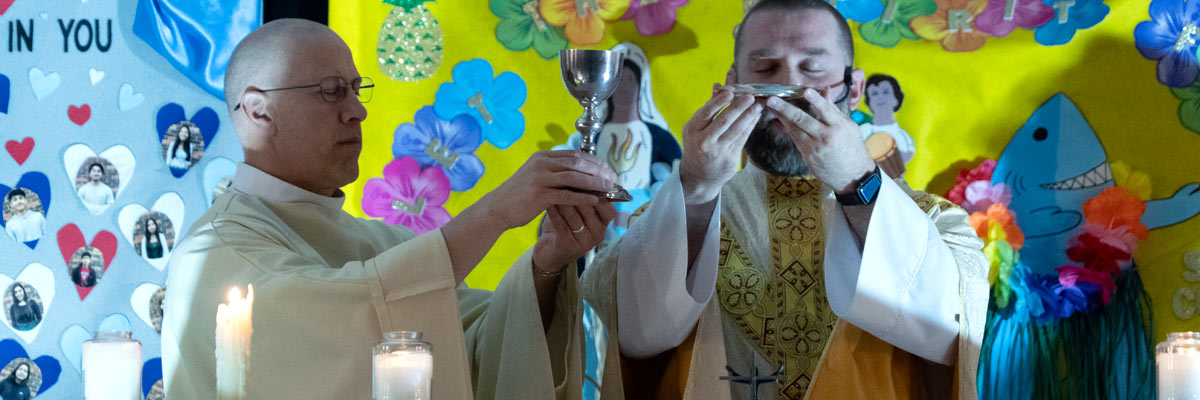Official Website of the
Catholic Diocese of Little Rock
Opening Mass Jubilee Year 2025
Published: December 29, 2024
Bishop Anthony B. Taylor preached the following homily for the Mass to open Jubilee Year 2025 in the Diocese of Little Rock at the Cathedral of St. Andrew on Sunday, Dec. 29, 2024. The readings were for the feast of the Holy Family of Jesus, Mary and Joseph.

Bishop Taylor
Every 25 years, we Catholics celebrate a special jubilee year. Some of you may remember the Jubilee 2000 under Pope John Paul II.
Pope Francis has decided that the theme for our jubilee in 2025 will be "Pilgrims of Hope," and that this year’s jubilee will begin today on the feast of the Holy Family. The focus of any jubilee is on forgiveness and reconciliation, but by having it begin on the feast of the Holy Family, who were forced to flee to Egypt and live there for a time as refugees, Pope Francis is making it clear that a major focus of this jubilee is on the plight of migrants.
This theme is very timely in many parts of the world, including here in the United States, where we have a broken immigration system and the threat of massive deportations of people who are simply exercising their God-given right to immigrate when circumstances so require — a right which is intrinsic to the human person, and so does not derive from the state.
And this year if you visit one of our specially designated jubilee churches as a pilgrim and pray there for the intentions of the Holy Father, and then go to confession and receive Communion in any Catholic church, you will get a plenary indulgence.
The state can regulate the exercise of this right for the common good, but no government has the authority to deprive us of our God-given rights nor to apply them in a selective or discriminatory manner.
Sixteen years ago, I issued a pastoral letter on the human rights of immigrants, titled “I was a Stranger, and You Welcomed Me.” Believe it or not, this document is not outdated because little has changed in the last 16 years. This pastoral letter can be downloaded from our diocesan website, and hard copies are available from the diocese. I recommend that as “pilgrims of hope,” you study this document as part of your observance of this jubilee year.
You will see what Scripture and the Church have to say on this important topic, a message that is in many ways the opposite of what we often see on the news. By having this jubilee year begin on the feast of the Holy Family, our focus is also directed to the challenges we face in our families and to consider what we can do to strengthen our marriages and our family ties.
In our first reading today, we have the story of the conception, birth and vocation of the prophet Samuel. His mother, Hannah, made a promise that her son would belong to God as a Nazirite, and she went so far as to entrust him to the prophet Eli from his earliest childhood. She reminds us that our children belong to God as well, and our homes need to be places where holiness and forgiveness are nurtured and virtues fostered from earliest childhood.
In our second reading, John reminds us that we are “children of God,” and he reminds us that this may result in a certain amount of incomprehension in our dealings with the larger society. He says, “The reason the world does not know us” — understand who we are — “is that it did not know him” — meaning Jesus and all he stands for. And so, we also can expect to encounter opposition when faithfulness to Jesus requires us to give voice to unpopular truths.
And in our Gospel, we have Jesus left behind in the Temple discussing theology with the teachers there while his parents spend three days full of worry, searching for him frantically. The emotions were obviously high when they found him, and I’ll bet they found his explanation hard to take: “Why were you looking for me? Did you not know that I must be in my Father’s house?
In my family, that would have led to an opportunity to go to confession, which is another focus of our jubilee year. And this year if you visit one of our specially designated jubilee churches as a pilgrim and pray there for the intentions of the Holy Father, and then go to confession and receive Communion in any Catholic church, you will get a plenary indulgence.
This feast of the Holy Family speaks to both the public and private sides of what it means to be “Pilgrims of Hope.” In the public sphere, there is our obligation to advocate for human rights and thus provide assistance to our immigrants, regardless of how they came here — no one immigrates because things are going great in the old country. And in the private sphere, we are called to foster holiness, forgiveness and reconciliation personally and in our families.









